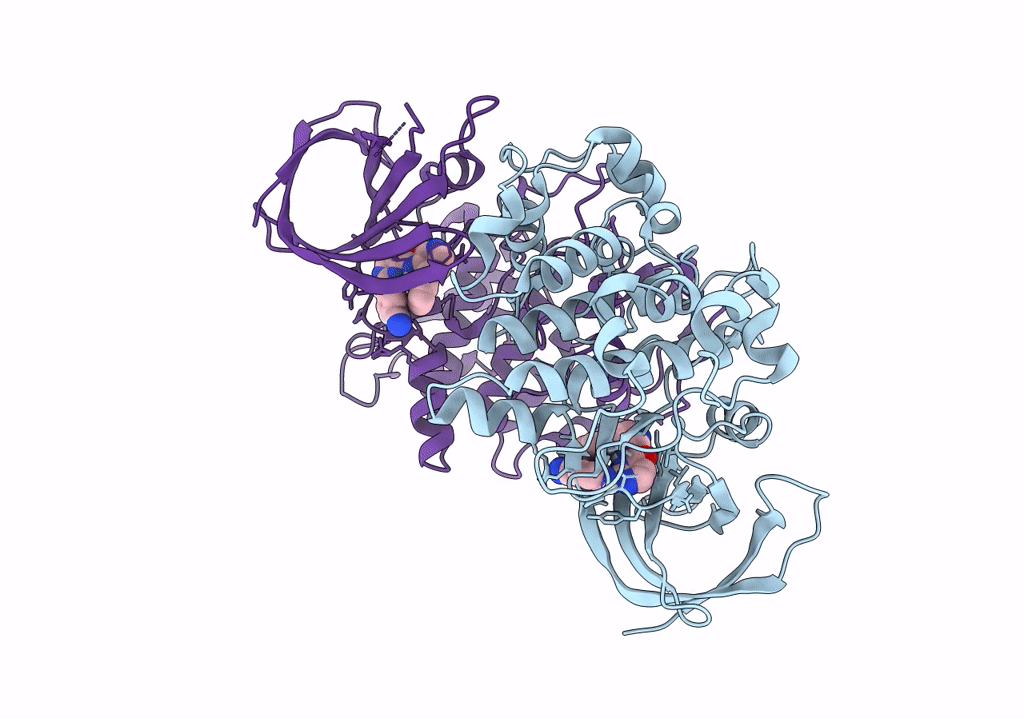
Deposition Date
2022-12-08
Release Date
2023-06-07
Last Version Date
2024-05-22
Entry Detail
PDB ID:
8FF8
Keywords:
Title:
CRYSTAL STRUCTURE OF GLYCOGEN SYNTHASE KINASE 3 BETA COMPLEXED WITH 2-[(4-CYANOPHENYL)AMINO]-N-(4-PHENYLPYRIDIN-3-YL)PYRIMIDINE-4-CARBOXAMIDE
Biological Source:
Source Organism(s):
Homo sapiens (Taxon ID: 9606)
Expression System(s):
Method Details:
Experimental Method:
Resolution:
2.33 Å
R-Value Free:
0.21
R-Value Work:
0.19
R-Value Observed:
0.19
Space Group:
P 21 21 21


